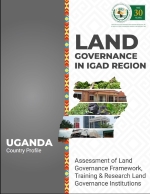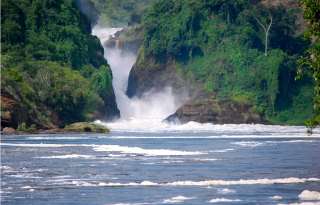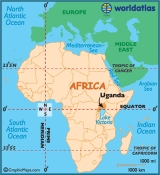|
|
|
Uganda has substantial natural resources, including fertile soils; regular rainfall; substantial reserves of recoverable oil; and small deposits of copper, gold, and other minerals. Agriculture is one of the most important sectors of the economy, employing 72% of the work force. Oil revenues and taxes are expected to become a larger source of government funding as oil production starts in the next 3 - 10 years.
Profiles
 Uganda is located in East Africa and lies across the equator, about 800 kilometres inland from the Indian Ocean. It lies between 10 29’ South and 40 12’ North latitude, 290 34 East and 350 0’ East longitude. Uganda is a landlocked country located in East Africa. It is bordered by Kenya in the East; South Sudan in the North; Democratic Republic of Congo in the West; Tanzania in the South; and Rwanda in South West. It has a total area of 241,551 square kilometers, of which the land area covers 200,523 square kilometres. Land is probably the most invaluable asset for the citizens of Uganda. With more than 80% of the population rural and directly deriving livelihoods through subsistence agriculture, land access, ownership and use are core to economic, social and environmental drivers. According to the Uganda Bureau of Statistics report on the National Population and Housing Census 2014 the total population in 2014 was 34.6 million.
Uganda is located in East Africa and lies across the equator, about 800 kilometres inland from the Indian Ocean. It lies between 10 29’ South and 40 12’ North latitude, 290 34 East and 350 0’ East longitude. Uganda is a landlocked country located in East Africa. It is bordered by Kenya in the East; South Sudan in the North; Democratic Republic of Congo in the West; Tanzania in the South; and Rwanda in South West. It has a total area of 241,551 square kilometers, of which the land area covers 200,523 square kilometres. Land is probably the most invaluable asset for the citizens of Uganda. With more than 80% of the population rural and directly deriving livelihoods through subsistence agriculture, land access, ownership and use are core to economic, social and environmental drivers. According to the Uganda Bureau of Statistics report on the National Population and Housing Census 2014 the total population in 2014 was 34.6 million.
In Uganda, the legal and policy framework guiding and governances is enshrined in a number of laws and regulations governing Land. The key ones are as follows:
Read More on folder Profiles...



